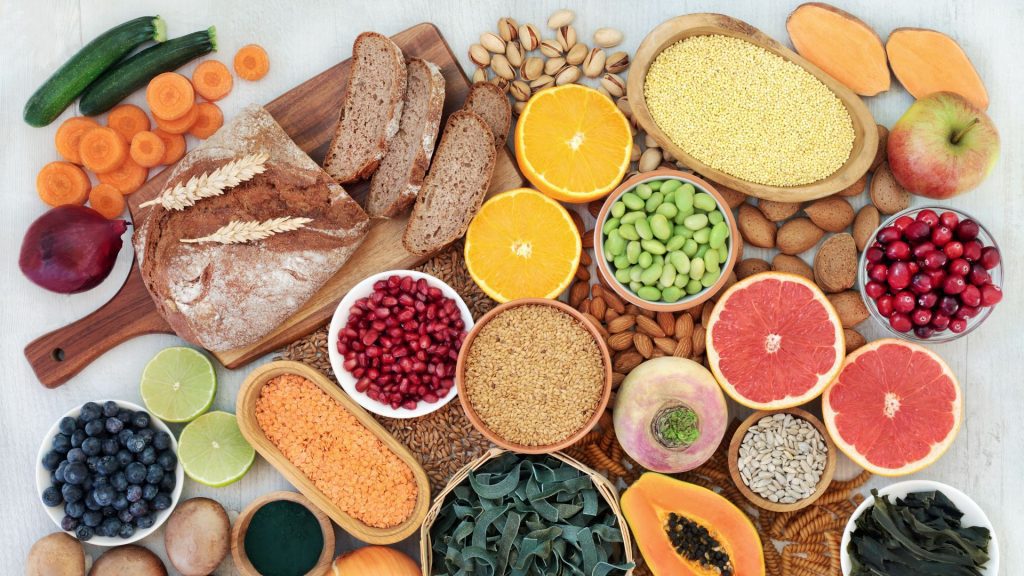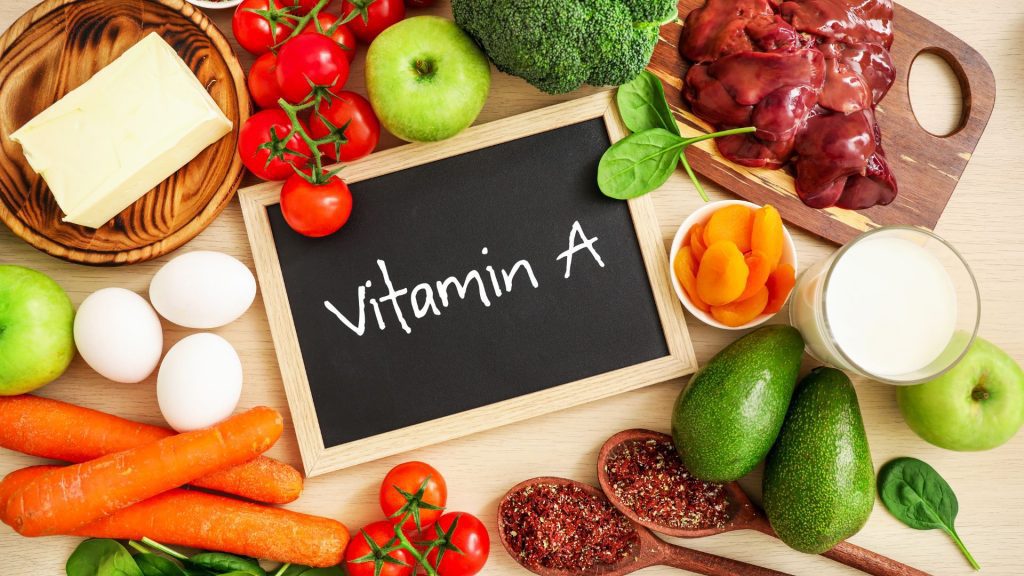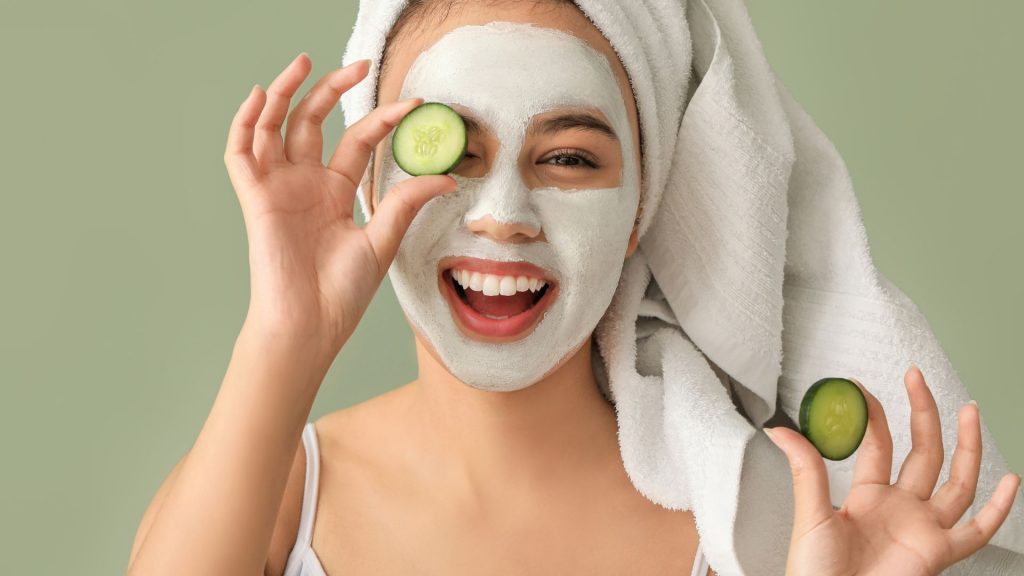Our skin is an eliminatory organ, therefore if we are not eliminating regularly via our bowel and our liver is under pressure, then the skin can take the hit.
Therefore, for skin health, it is not just about nourishing the skin itself but also ensuring other detox organs are functioning well.
There are many foods for skincare that will also support the rest of the body. Before we consider certain foods and nutrients to support detoxification and skin health, it is important to highlight hydration!
Hydration
Ensuring you drink enough water each day is vital for supporting all detox organs, preventing constipation and hydrating skin cells. Always start the day with a glass of filtered water and aim for 1.5 litres of water throughout the day. Herbal teas are included in this and certain teas such as nettle and dandelion are also fantastic for detoxification.
Next let us consider foods, vitamins and nutrients for healthy skin.

Fibre
You are probably aware of how fibre is good for digestive health, but how does this help skin?
Through our bowel movement we eliminate certain waste products that, if not eliminated due to constipation, can put pressure on our liver and create skin issues.
For example, oestrogen is detoxed through our liver and eliminated via bowel movement. Excess oestrogen can get recirculated and create hormonal and skin issues. Fibre helps bind to ‘old’ hormones and eliminate them.
Fibre will also help to feed our beneficial gut bacteria, keeping our pathogenic gut bacteria in check. An abundance of pathogenic bacteria can cause constipation. These bacteria also produce endotoxins which puts further strain on the liver.
Aim to get a variety of fruits and vegetables daily. Choose wholemeal bread, brown rice and wholegrain pasta instead of white varieties. Include plant protein such as beans, lentils, nuts and seeds as these will also provide great sources of fibre.

Vitamin A
A deficiency of vitamin A can result in symptoms such as bumps on the backs of arms, issues with night vision, dry eyes, dry skin and frequent throat and chest infections. Vitamin A assists in nourishing and maintaining the top two layers of the skin, the dermis and epidermis. Foods rich in vitamin A include brightly coloured veggies such as carrot, butternut squash and red peppers.
Click here for Maggie’s Soothing Turmeric and Butternut Squash soup recipe!
Animal foods rich in vitamin A include meat, fish, liver and eggs. A good quality cod liver oil supplement will also provide a natural source of vitamin A (as well as healthy fats for the skin, see further on!)
Zinc
A deficiency in zinc can manifest as symptoms such as poor taste/smell, regular coughs/colds, delayed wound healing and loss of appetite. Zinc is excellent for healing, including healing of skin. Zinc helps with retinol binding protein (reflects vitamin A in tissues). Increase zinc through dietary sources such as beans, nuts, oysters, pumpkin seeds, red meat and wholegrains.

Healthy fats
Every cell membrane in our body is made of fats. It is therefore vital that we minimise our consumption of unhealthy fats and maximise our intake of healthy fats. These healthy fats help to maintain cell membrane integrity and promote glowing skin. A combination of these healthy fats provide an abundance of nutrition for healthy skin:
- GLA: from a variety of nuts and seeds, and their oils, particularly oils such as starflower oil and evening primrose oil
- Omega 3: from chia seeds, ground flaxseed and oily fish (salmon, trout, mackerel, herring, sardines, anchovies). Omega 3 also acts as an anti inflammatory.
Click here for Maggies Smoked Mackerel Horseradish & Chervil Pate
- Phospholipids: Lecithin from supermarkets can be added to smoothies or sprinkled over meals.
As a reminder, it is best to avoid deep fried foods and unhealthy oils such as chips and crisps.
Read more in our blog here on ‘What are healthy fats and sneaky myth busting’
Vitamin E
Vitamin E also helps to nourish the top layer of the skin. It is a fat-soluble vitamin coming from avocado, olive oil, nuts and seeds.
As you can see from the above, eating a diet rich in unprocessed, single ingredient foods, will provide nutrition for healthy skin. However, if you need extra support you may want to consider additional short-term supplementation or you may need additional support to rebalance any digestive issues. In order to do this, speak with a nutritional therapist to come up with the right plan for you. See https://membership.ntoi.ie/find-practitioner/











